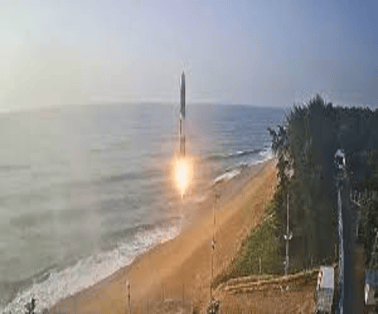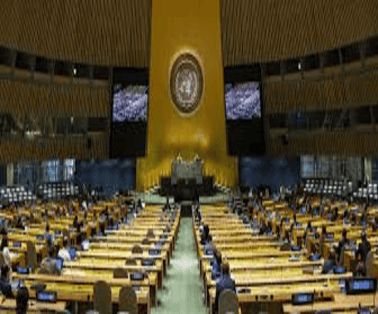The Deputy Speaker of Lok Sabha plays a pivotal constitutional role in India’s parliamentary democracy. While the Speaker of Lok Sabha is well-recognized, the Deputy Speaker is equally crucial in ensuring the continuity of House proceedings.
Current Status of the Deputy Speaker
- The previous Deputy Speaker was Thambi Durai during the 16th Lok Sabha (2014-19).
- This constitutional post was vacant during the entire period of 17th Lok Sabha from 2019 to 2024.
- The Opposition had the post of Deputy Speaker continuously from 1990 through 2014.
Constitutional Background
- The post of Speaker and Deputy Speaker originated in India in 1921 under the provisions of Government of India Act of 1919 (Montague-Chelmsford Reforms).
- In 1921, Deputy Speaker was called as Deputy President but the Government of India Act of 1935 changed the nomenclatures of Deputy President to Deputy Speaker.
- However, the old nomenclature continued till 1947 as the federal part of the 1935 Act was not implemented.
- Article 93 states that “The House of the People shall, as soon as may be, choose two members of the House to be respectively Speaker and Deputy Speaker”
- Article 178 of Indian Constitution mentions about the position of Deputy Speaker of the Legislative Assembly.
Election of Deputy Speaker of Lok Sabha
- The Deputy Speaker of Lok Sabha is elected by the Lok Sabha itself from amongst its members.
- The Deputy Speaker is elected only after the election of the Speaker has taken place.
- The date of election of the Deputy Speaker is fixed by the Speaker of Lok Sabha.
- The Deputy Speaker of Lok Sabha, while assuming his/her office, does not make and subscribe to any separate oath or affirmation.
Timing of appointment
- The Rule 8 of the Rules of Procedure and Conduct of Business in Lok Sabha says that the election of Deputy Speaker “shall be held on such date as the Speaker may fix”.
- The election usually takes place in the second session, even though there is no bar on having this election in the first session of the new Lok Sabha or Assembly.
- But it is generally not delayed beyond the second session unless there are some genuine and unavoidable constraints.
- While assuming the office of Deputy Speaker, he/ she do not make and subscribe any separate oath or affirmation.
Tenure of Deputy Speaker of Lok Sabha
- The Deputy Speaker remains in office during the life of the Lok Sabha.
- However, the Deputy Speaker has to vacate his/her office earlier in any of the following three cases:
- If he/she ceases to be a member of the Lok Sabha,
- If he/she resigns by writing to the Speaker,
- If he/she is removed by a resolution passed by a majority of all the then members of the Lok Sabha (i.e. Effective Majority)
Removal of Deputy Speaker of Lok Sabha
- The Deputy Speaker of Lok Sabha can be removed by a resolution passed by the Lok Sabha by an Effective Majority (i.e. a majority of the total membership of the House excluding the vacant seats).
- A motion of removal of the Speaker of Lok Sabha can be moved only after giving 14 days’ advance notice to the Speaker.
- When a resolution for removal of the Deputy Speaker is under consideration, he/she cannot preside at the sitting of the house, though he may be present.
- Whenever the office of the Deputy Speaker falls vacant, the Lok Sabha elects another member to fill the vacancy.
Remuneration
- Article 97 says that the salary and allowances are determined by the parliament which also includes sumptuary allowances.
- Thus, the Parliament enacted the Salaries and Allowances of Officers of Parliament Act in 1953.
- Deputy speaker comes under the ambit of ‘officers of parliament’.
- They are charged on the consolidated fund of India and thus not subject to the annual vote of parliament.
Functions And Powers Of Deputy Speaker
- Article 95 of the Indian Constitution mentions about the power of the Deputy Speaker.
- Deputy Speaker is not subordinate to the Speaker but is directly responsible to the house.
- When the Speaker presides over the House, the Deputy Speaker is like any other ordinary member of the house.
- Speaker can resign from the post by writing to the Deputy Speaker.
- According to Article 95(1), the Deputy Speaker performs the duties of the Speaker if the post is vacant or when the latter is absent from the sitting.
- In both the cases, he/ she assumes all the powers of the Speaker.
- He/she also presides over the joint sitting of both the houses of parliament, in case the speaker is absent from such a sitting.
- While presiding over the house, he/she cannot vote in the first instance and can only exercise a casting vote in the case of a tie.
- Whenever he / she is appointed as a member of a parliamentary committee, he/ she automatically becomes its chairman.
- Deputy Speaker acts as a chairman of “Committee on Private Members’ Bills and Resolutions.”
- The Deputy Speaker of Lok Sabha is an ex-officio vice-president of Indian Parliamentary Group
Why the Deputy Speaker Post Matters
- Ensures uninterrupted functioning of Lok Sabha in Speaker’s absence.
- Symbol of parliamentary balance and bipartisan functioning.
- Reflects constitutional integrity and democratic practices.
Facts About Deputy Speakers In Lok Sabha
- In 1921, Frederick Whyte and Sachidanand Sinha were appointed by the Governor-General of India as the first Speaker (then called President) and the first Deputy Speaker (then called Deputy President) respectively of the Central Legislative Assembly.
- In 1925, Vithalbhai J. Patel became the first Indian and the first elected Speaker of the Central Legislative Assembly.
- V. Mavalankar and Ananthasayanam Ayyangar had the distinction of being the first Speaker and the first Deputy Speaker (respectively) of the Lok Sabha.
- V. Mavalankar also held the post of Speaker in the Constituent Assembly (Legislative) as well as the Provisional Parliament.
- Mavalankar held the post of Speaker of Lok Sabha continuously for one decade from 1946 to 1956.
Here is a list of Deputy Speakers in the Lok Sabha
- M. Ananthasayanam Ayyangar, 1952–1956 (Indian National Congress)
- S. Nagappa, 1956–1962 (Indian National Congress)
- Bali Ram Bhagat, 1962–1967 (Indian National Congress)
- Godey Murahari, 1967–1971 (Indian National Congress)
- N. Sanjiva Reddy, 1977–1979 Janata Party
- M. Thambidurai, 1985–1989 (AIADMK)
- Shivraj Patil, 1989–1991 (Indian National Congress)
- P.A. Sangma, 1996–1998 (Nationalist Congress Party)
- 9. P.M. Sayeed, 1998–1999. (Indian National Congress)
- Chandrakant Khaire, 1999-2004 (Shiv Sena)
- Charanjit Singh Atwal, 2004–2009 (Shiromani Akali Dal)
- Kariya Munda, 2009–2014 (Bharatiya Janata Party)
- M. Thambi durai, 2014–2019 (AIADMK)
The post of deputy speaker in Lok Sabha has been vacant since 2019 to present.
To Download Monthly Current Affairs PDF Click here
Click here to get a free demo
Discover all about CLAT Exam



